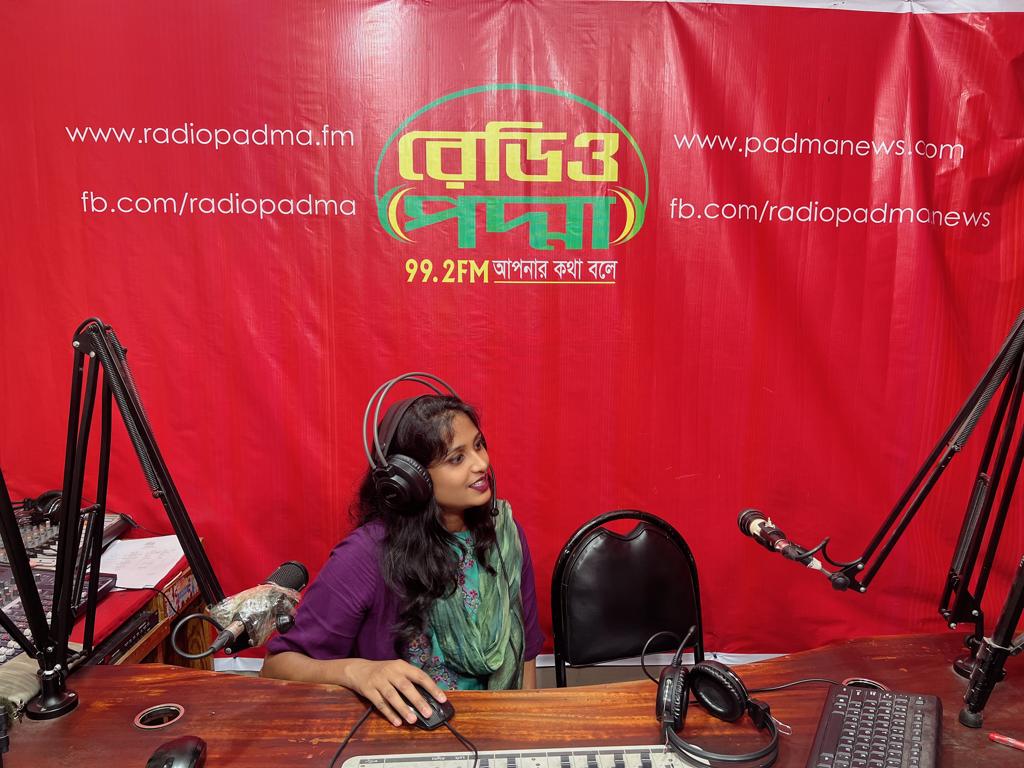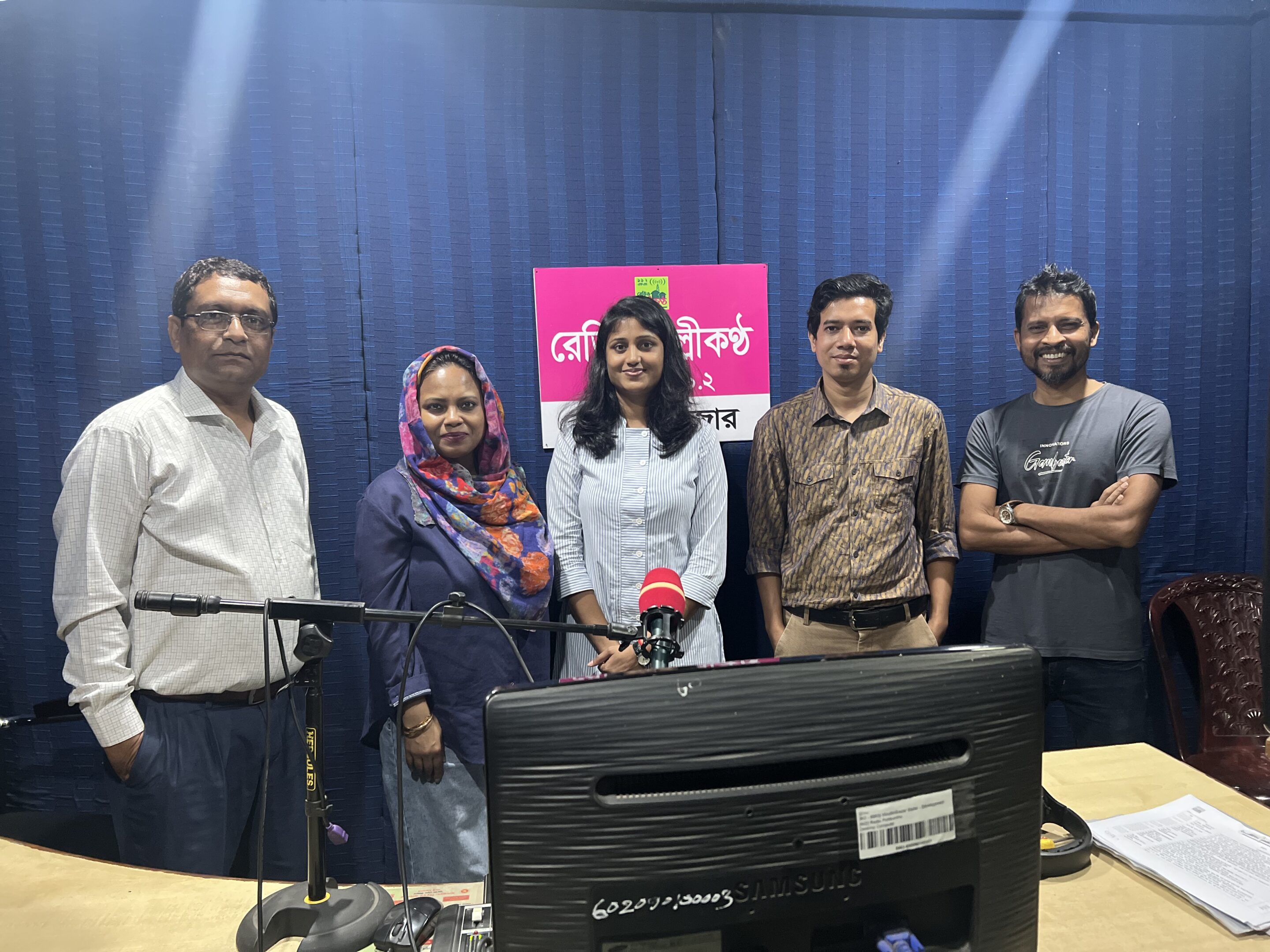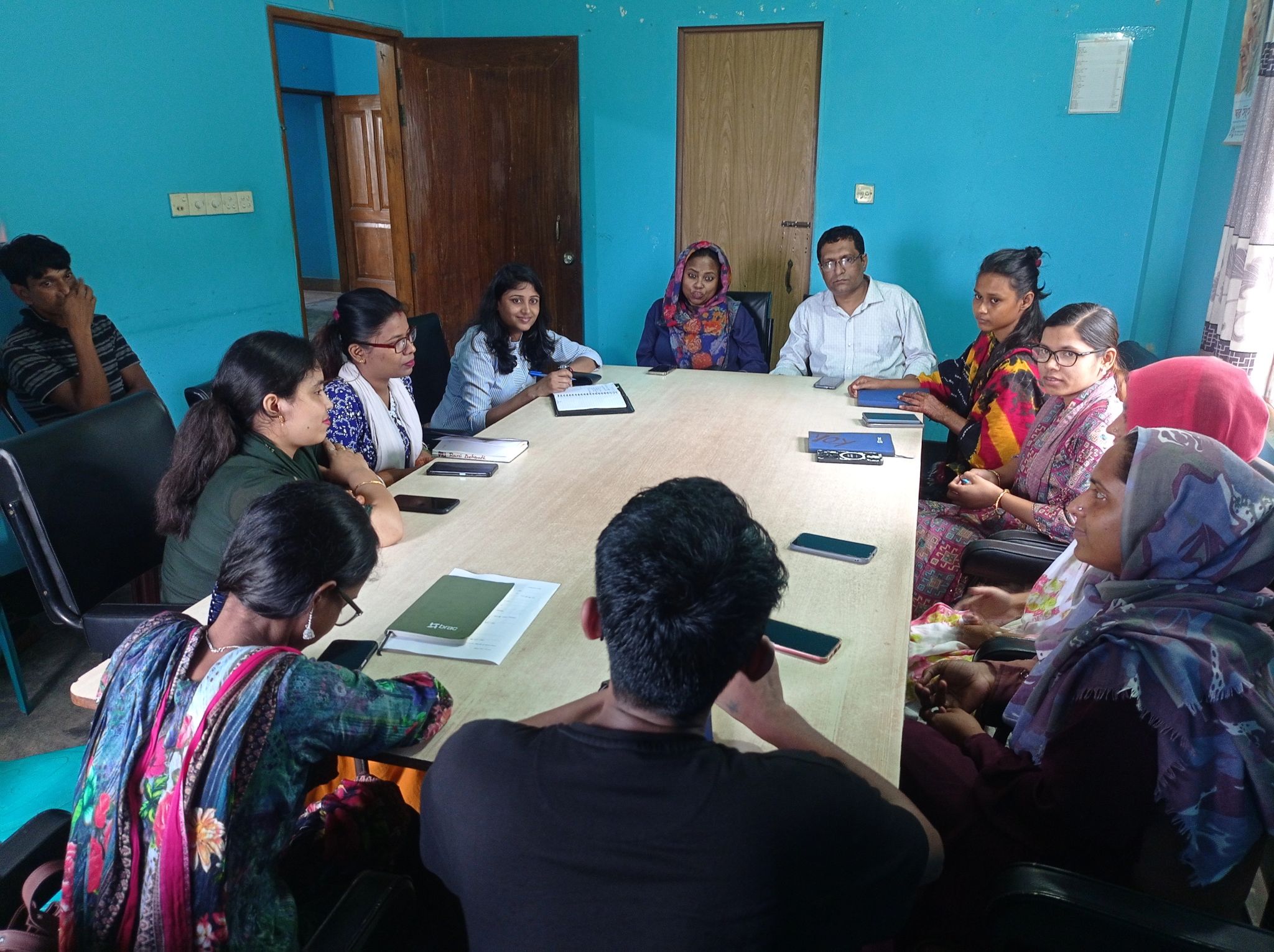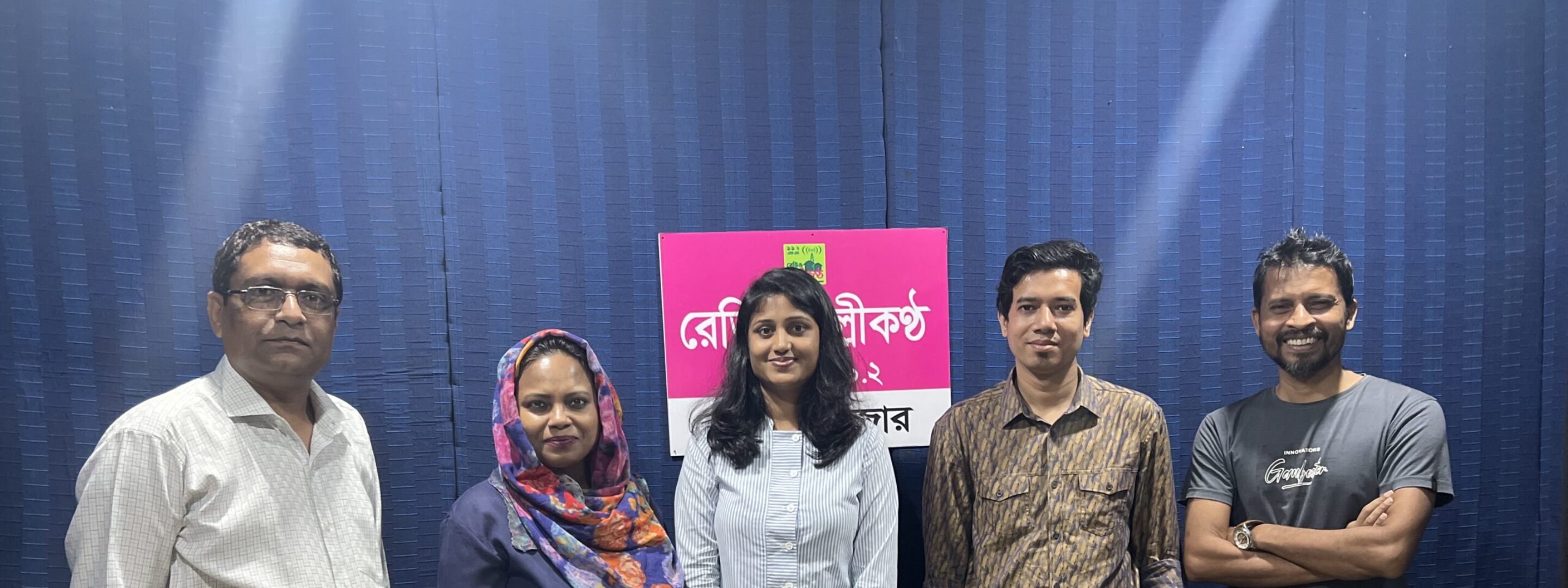Turning personal hardship into social activism
Turning personal hardship into social activism

Sumita Rabidas is passionate about uplifting the quality of life for minorities and advocating for their human rights. She produces community radio programmes that educate marginalised communities on a variety of topics including digital skills to improve their livelihoods.
Sumita knows hardship. She grew up in the Gaibandha district in northern Bangladesh and is a member of Rabidas indigenous community. As one of few indigenous girls in her district to go to elementary school, her achievements were sadly often dismissed. She was often forced to clean classrooms, after classes. Indigenous minorities in Bangladesh, with their own languages and customs, experience higher poverty rates[1] and have lower incomes than the national average.
“My father worked as a cobbler while my mother took care of the household. Money was scarce growing up, and this meant that I had to work and study to help the family. Seeing sacrifices my parents made for me to be able to go to school pushed me to continue my education,” says Sumita.

Her desire to get out of poverty was a key motivator for her to complete her education. With support from teachers in high school, she obtained a scholarship. She could finally afford a study desk and a schoolbag. She eventually graduated with a degree in sociology from Bangladesh University.
“My own experience was a catalyst for me to want to improve the lives of people in my community and other minorities. Often, I had nowhere to turn to, so my will and inspiration to speak out for them comes from within.”
She got a taste of activism and journalism, when she volunteered at a community radio station that shone a spotlight on issues of indigenous people.

Educating youths through radio
Today, she works as a programme coordinator at Bangladesh Community Radio Association (BCRA) – a coalition of advocacy-focused community radio stations. These local radio stations play a vital role in providing information to people in remote and underdeveloped areas, where national media has limited coverage.
One of the key projects Soumita works on is the Safe Digital Space for Girls and Youth (SDSGY) Project, an initiative by Plan International Bangladesh, Grameenphone and Telenor.
The Project aims to address the multifaceted challenges of cyberbullying, online harassment, misinformation, and other digital risks faced by girls and youths in Bangladesh. Within the first year of implementation, the SDSGY Project’s digital literacy lessons reached 280,000 people through the network of BCRA’s radio stations.
“I am very proud to be part of this project because it is helping youths improve digital skills. Because of its impact, I consider it a highlight in my career! Organisations should implement innovative programmes that achieve significant impact, introduce fresh approaches, and drive meaningful behavioural changes.”
Through in-person community activities, youths from marginalised groups learn how to protect themselves online, make informed decisions and engage positively in digital spaces. Trainers also collaborate closely with teachers to better understand youth’s needs and priorities.

Amplifying marginalised voices
“Connectivity has been very useful in reaching marginalised and indigenous communities, as many of them work irregular hours. We put recordings of our radio programmes online, so that they can listen and learn on demand, extending access beyond traditional broadcasting hours. We also interact with audiences via email and on social media platforms. We can tailor radio programmes to meet the specific interests of our listeners and experiment with formats – from discussions on topical issues to spoken dramas,” Sumita explains.
Popular shows include lessons on protecting passwords, identifying misinformation, dealing with online bullying and avoiding scams and have been useful.
She recalls one example. “A caller asked a guest speaker on my show if he should respond to a foreign donor’s request to fund a campaign. After evaluating the information, the expert advised the caller to block the person as it was most likely a scam. The expert advised listeners to verify the authenticity of such requests and not trust easily. They can double check facts through local authorities or international NGOs.”
Sumita is optimistic about the future and wants to explore different approaches for indigenous minorities to be proficient in digital skills from young. “I would love to establish tech clubs in rural villages across Bangladesh. I want to help young people explore technology and gain digital skills, to help them out of poverty earlier in life. Perhaps one day, the next Bill Gates can emerge from one of these villages.”
[1]Source: https://indigenousnavigator.org/publication/bangladesh-fact-sheet-on-indigenous-peoples

